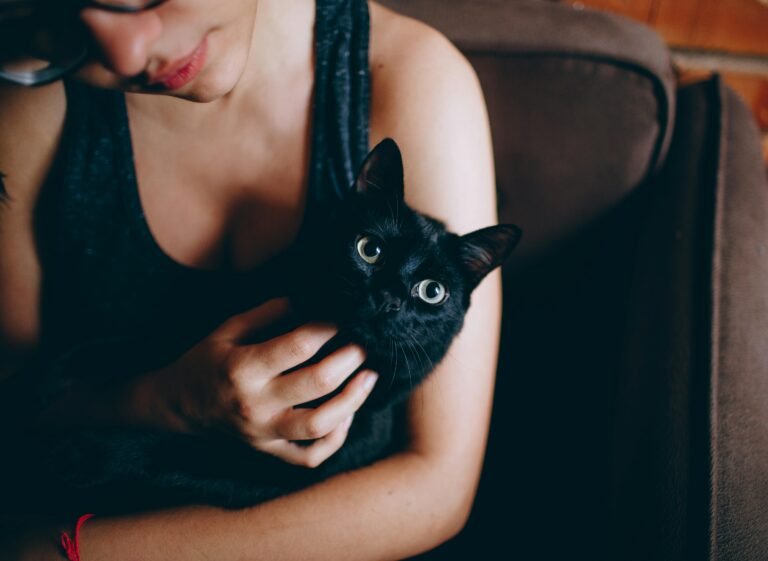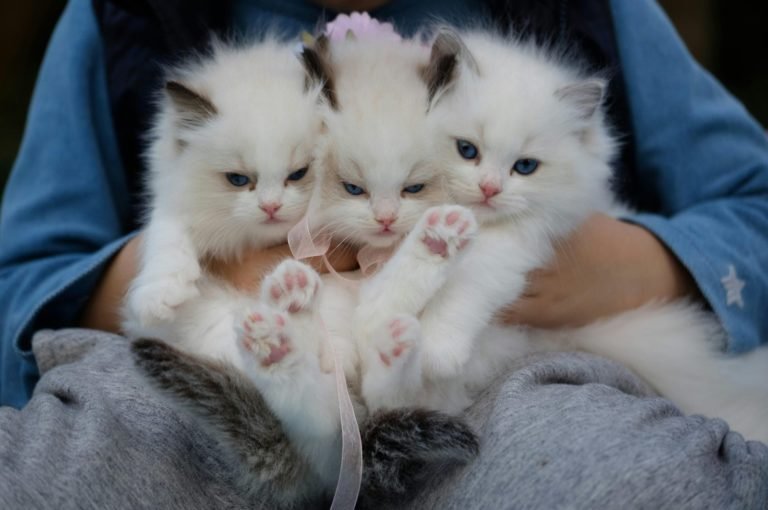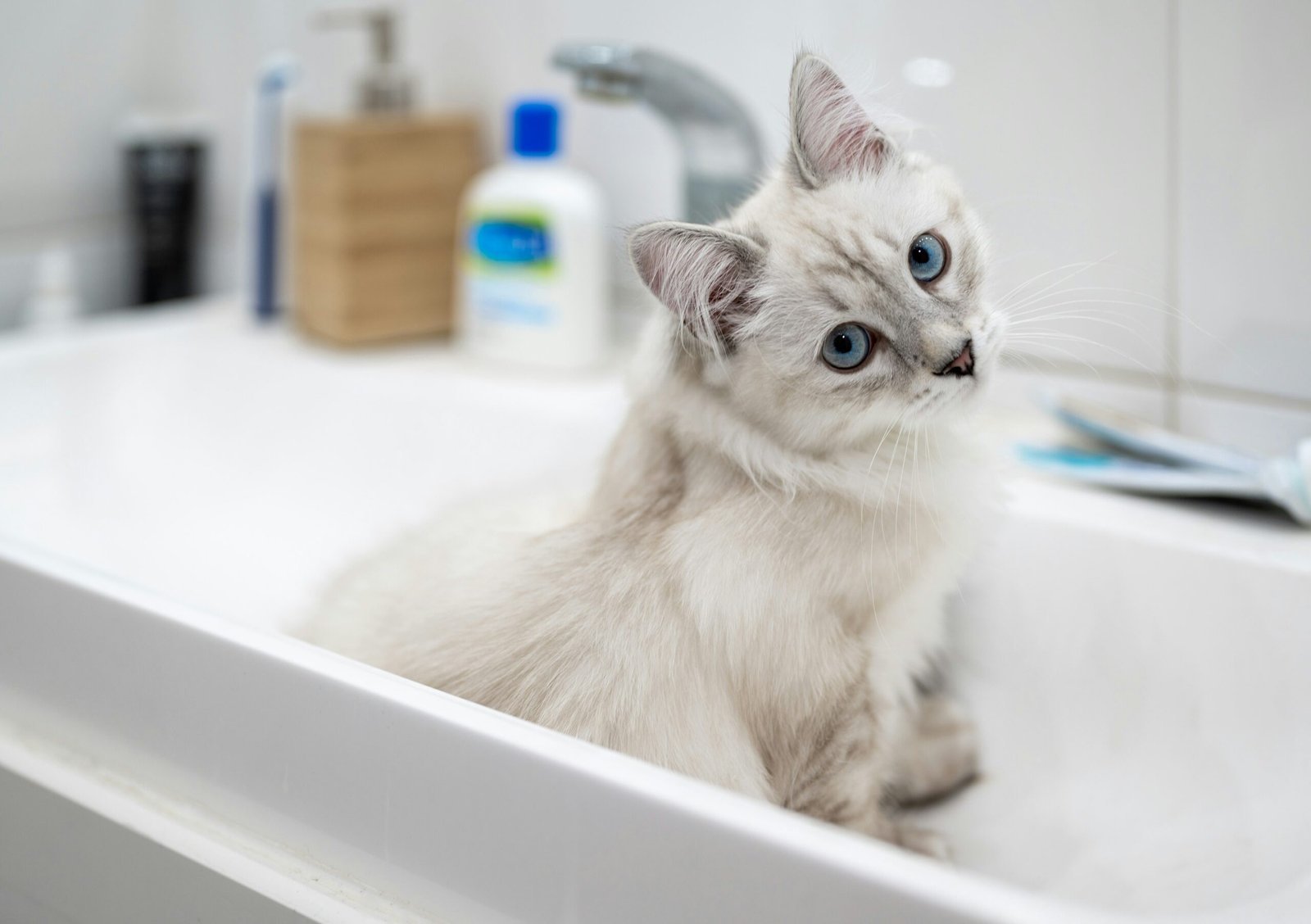
Did you know that a tiny kitten can fight off a lion-sized disease with just a small shot? It’s true! Cat vaccinations are like giving your furry friend a superpower. They help your cat stay strong and healthy, ready to chase toys and cuddle with you for years to come.
Cat vaccinations are super important. They stop cats from getting sick with some really bad diseases. These diseases can make cats very ill or even cause them to die. By getting your cat vaccinated, you’re helping them stay healthy.
Some people think cat vaccinations aren’t needed or might be bad for their pets. But that’s not true! Vaccinations are safe and have been used for many years to keep cats healthy. They’re one of the best ways to protect your cat from getting sick.
Why Cat Vaccinations Matter
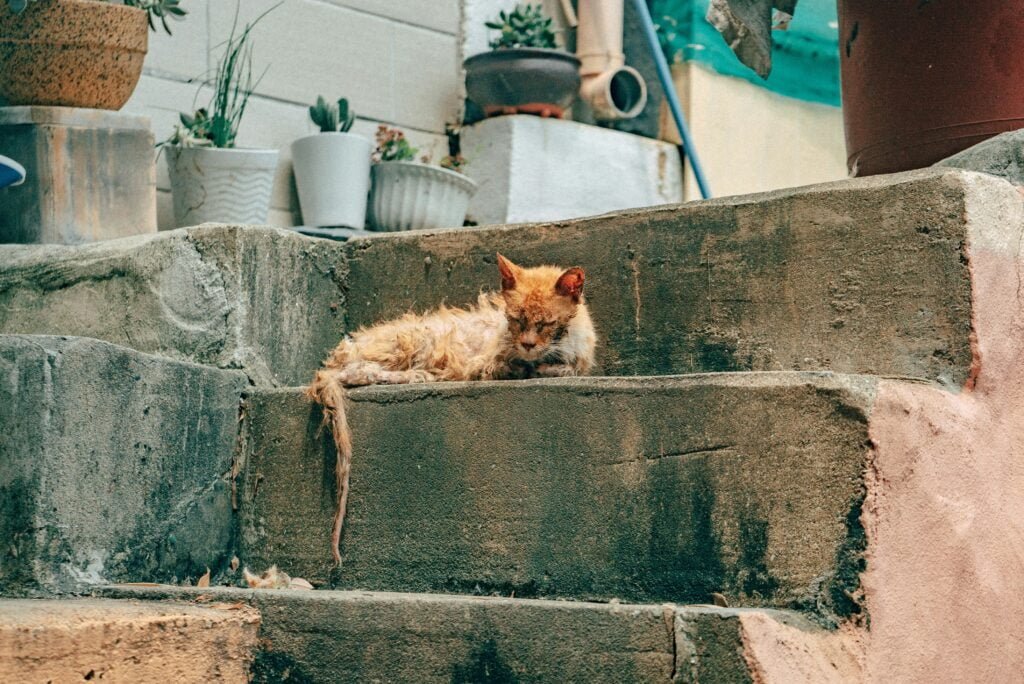
Imagine if there was a magic shield that could protect your cat from getting really sick. Well, that’s kind of what vaccinations do! They’re special medicines that teach your cat’s body how to fight off some very nasty illnesses.
When your cat gets a vaccination, their body learns to recognize bad germs. Then, if those germs ever try to make your cat sick, their body already knows how to stop them. It’s like your cat’s body has a little army ready to fight off invaders!
Cat Vaccinations are super important because:
1. They keep your cat from getting very sick: Some cat illnesses can make your furry friend feel awful or even be life-threatening. Cat vaccinations help prevent these scary situations.
2. They save you money in the long run: While cat vaccinations do cost some money, they’re much cheaper than treating a very sick cat.
3. They protect other cats, too: When your cat is vaccinated, they’re less likely to spread diseases to other cats they meet.
4. Some cat vaccinations even protect you: Certain illnesses, like rabies, can spread from cats to humans. By vaccinating your cat, you’re keeping yourself safe, too!
Clearing Up Some Confusion About Cat Vaccinations:
Now, you might have heard some people say that cat vaccinations aren’t good. But that’s not true! Let’s clear up some common misunderstandings:
Myth 1: “Cat vaccinations are dangerous for cats.”
Truth: Cat vaccinations are very safe. Vets have been using them for many years to keep cats healthy. While some cats might feel a little tired after a shot, serious problems are very rare.
Myth 2: “Indoor cats don’t need cat vaccinations.”
Truth: Even indoor cats can be exposed to diseases. Some illnesses can be brought in on your shoes or clothes. Plus, your indoor cat might accidentally get outside one day.
Myth 3: “Cat vaccinations last forever.”
Truth: Most cat vaccinations need to be updated every few years. This repeat cat vaccination is called a “booster shot,” and it helps keep your cat protected.
Myth 4: “Cat vaccinations are just a way for vets to make money.”
Truth: Vets recommend vaccinations because they truly help keep cats healthy. Preventing disease is always better (and usually cheaper) than treating it.
By understanding why cat vaccinations are important and clearing up these myths, you’re already taking a big step in being a great cat parent. Vaccinations might seem like a small thing, but they make a huge difference in your cat’s life.
In the next sections, we’ll dive deeper into which vaccinations your cat needs, when they should get them, and how to make the whole process easier for both you and your feline friend.
So, are you ready to learn more about how to be your cat’s health superhero with proper cat vaccinations? Let’s go!
The Most Important Cat Vaccinations
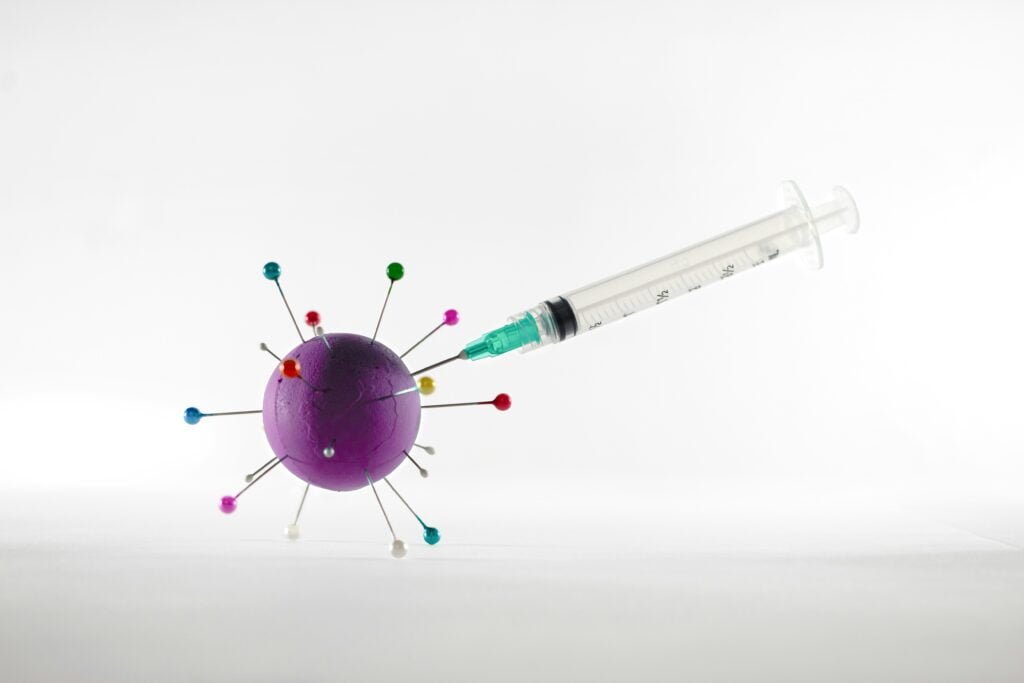
When it comes to keeping your cat healthy, there are a few vaccinations that veterinarians consider essential. These are often called “core vaccinations” because they protect against the most common and serious diseases.
Let’s look at each one in detail:
1. FVRCP Vaccination
FVRCP is a combination vaccine that protects against three different diseases. It’s sometimes called the “distemper shot” or “3-in-1 vaccine”. Here’s what each letter stands for:
F – Feline Viral Rhinotracheitis (FVR):
A herpes virus causes FVR and is like a really bad cold for cats. It can cause:
- Sneezing and coughing
- Runny nose and eyes
- Fever
- Loss of appetite
- In severe cases, it can lead to eye ulcers
Cats with FVR might get better, but the virus can stay in their body and come back when they’re stressed.
V – Calicivirus:
- This virus causes respiratory problems and mouth sores. Symptoms include:
- Ulcers on the tongue, gums, or nose
- Sneezing and eye discharge
- Fever
- Limping (in some cases)
Calicivirus can be very uncomfortable for cats and makes it hard for them to eat.
R – Rhinotracheitis:
This condition is another name for the respiratory problems caused by the herpes virus (FVR).
C – Chlamydia:
Some FVRCP vaccines also protect against Chlamydia, a bacteria that can cause eye infections in cats.
P – Panleukopenia:
This condition is a very serious disease caused by a parvovirus. It used to be called “feline distemper.” Symptoms include:
- Severe vomiting and diarrhea
- High fever
- Extreme weakness
- Sudden death, especially in kittens
Panleukopenia can be deadly, especially for young cats. The virus can live in the environment for a long time, so vaccination is very important.
FVRCP Cat Vaccinations Schedule:
- Kittens: Start at 6-8 weeks old, then every 3-4 weeks until 16 weeks old
- Adult cats: Every 1-3 years, depending on risk factors
- Some indoor adult cats might only need it every 3 years
2. Rabies Vaccination
Rabies is a virus that affects the brain and is almost always fatal once symptoms appear. It’s zoonotic, which means it can spread from animals to humans. That’s why rabies vaccination is required by law in many places.
Symptoms of rabies in cats can include:
- Changes in behavior (aggression, confusion)
- Paralysis
- Seizures
- Excessive drooling
Rabies Cat Vaccinations Schedule:
- Kittens: First shot at 12-16 weeks old
- Adult cats: Boosters every 1-3 years, depending on the type of vaccine used and local laws
3. FeLV (Feline Leukemia Virus) Vaccination
While not always considered a core vaccine, FeLV vaccination is very important for cats at risk of exposure. FeLV weakens a cat’s immune system and can lead to:
- Anemia (low red blood cell count)
- Lymphoma (a type of cancer)
- Other types of cancer
- Persistent infections
FeLV spreads through close contact, shared food and water bowls, and from mother cats to kittens.
FeLV Cat Vaccinations Schedule:
- Kittens: Two shots, 3-4 weeks apart, starting at 8-9 weeks old
- Adult cats: Yearly boosters for cats at risk (outdoor cats or those living with FeLV-positive cats)
Other Non-Core Vaccinations
Depending on your cat’s lifestyle and risk factors, your vet might recommend additional vaccinations:
1. Feline Immunodeficiency Virus (FIV) Vaccine:
- For cats at high risk of exposure (outdoor cats who might fight with other cats)
- Doesn’t protect against all strains of FIV
2. Bordetella Vaccine:
- Protects against bacteria that can cause respiratory infections
- Often recommended for cats in shelters or catteries
3. Chlamydophila Felis Vaccine:
- Protects against bacteria that cause eye infections
- Sometimes included in the FVRCP vaccine
When Should Your Cats Get Their Vaccinations?
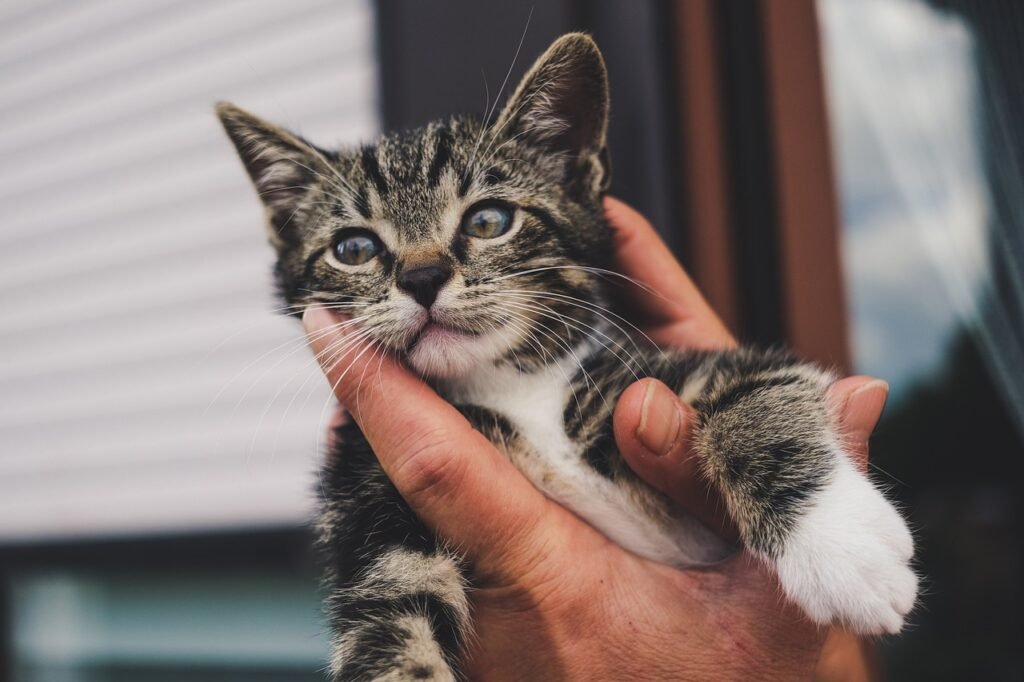
The timing of vaccinations is crucial for building proper immunity. Here’s a more detailed vaccination schedule:
Kitten Vaccination Schedule:
- 6-8 weeks: First FVRCP
- 9-11 weeks: Second FVRCP, First FeLV (if recommended)
- 12-14 weeks: Third FVRCP, Second FeLV, First Rabies
- 15-17 weeks: Fourth FVRCP (some vets recommend this extra booster
Adult Cat Vaccination Schedule:
- FVRCP: Every 1-3 years (depending on risk and type of vaccine)
- Rabies: Every 1-3 years (depending on local laws and type of vaccine)
- FeLV: Annually for at-risk cats
Senior Cat Considerations:
As cats get older, their immune systems may not work as well. Your vet might recommend continuing vaccinations or adjusting the schedule based on your cat’s health and lifestyle.
Remember, these are general guidelines. Your veterinarian will create a personalized vaccination plan for your cat based on factors like:
- Age and health status
- Lifestyle (indoor vs. outdoor)
- Local disease risks
- Previous vaccination history
- Any reactions to previous vaccinations
It’s important to keep a record of your cat’s vaccinations. This record helps you and your vet keep track of when boosters are due and can be useful if you need to board your cat or move to a new vet.
By following your vet’s recommended vaccination schedule, you’re giving your cat the best protection against serious diseases. While it might seem like a lot of shots, especially for kittens, each one plays a crucial role in building your cat’s immunity and ensuring they stay healthy throughout their life.
What Affects Your Cat’s Vaccination Needs?
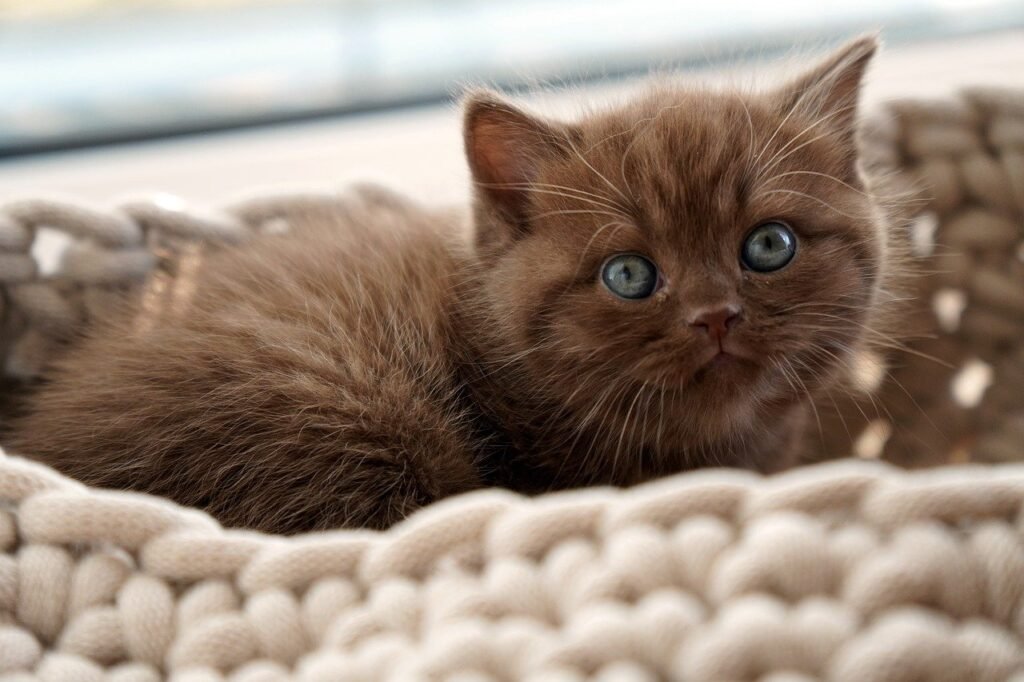
When it comes to vaccinations, there’s no one-size-fits-all approach for cats. Several factors influence which vaccines a cat needs and how often they should receive them. Let’s explore these factors in more detail:
1. Indoor vs. Outdoor Cats
The lifestyle of your cat is one of the most significant factors in determining their vaccination needs.
Outdoor Cats:
Cats that spend time outdoors are at higher risk of exposure to various diseases. They need a more comprehensive vaccination plan because:
- They may come into contact with other cats, including strays or feral cats that might carry diseases.
- They’re more likely to encounter wild animals that can transmit diseases like rabies.
- They might drink from puddles or eat prey that could be contaminated with parasites or diseases.
- They’re at risk of getting into fights with other cats, which can spread diseases like FIV (Feline Immunodeficiency Virus) or FeLV (Feline Leukemia Virus).
Outdoor cats typically need:
- Core vaccines (FVRCP and Rabies) on a regular schedule
- FeLV vaccine
- Possibly other non-core vaccines depending on local risks
Indoor Cats:
While indoor cats have a lower risk of exposure to many diseases, they still need protection. Here’s why:
- Some viruses, like the one that causes upper respiratory infections, can be brought into the home on shoes or clothing.
- Indoor cats might accidentally get outside.
- Some diseases, like rabies, are required by law regardless of lifestyle.
Indoor cats typically need:
- Core vaccines (FVRCP and Rabies), although they might be given less frequently
- FeLV vaccine might be recommended if there are other cats in the household
2. Kitten or Adult Cat
The age of your cat plays a crucial role in determining their vaccination needs.
Kittens:
Kittens need more frequent vaccinations because:
- They’re born with some immunity from their mother (maternal antibodies), but this wears off over time.
- Their immune systems are still developing and need extra support.
- They’re more vulnerable to severe effects from many feline diseases.
Kitten vaccination schedules typically involve:
- Starting vaccinations at 6-8 weeks of age
- Repeat doses every 3-4 weeks until 16-20 weeks of age
- This series of vaccinations helps ensure protection as maternal antibodies decrease
Adult Cats:
Adult cats generally need fewer vaccinations because:
- They’ve already built up immunity from kitten vaccinations or previous adult boosters.
- Their immune systems are fully developed.
Adult cats typically need the following:
- Booster shots to maintain immunity, usually every 1-3 years, depending on the vaccine
- The frequency may be adjusted based on lifestyle and risk factors
3. Age and Health
As cats get older or if they have health issues, their vaccination needs may change.
Senior Cats:
Older cats may have different vaccination requirements because:
- Their immune systems may not be as strong, making them more susceptible to disease.
- They might have underlying health conditions that affect how well vaccines work.
- The risk vs. benefit ratio of vaccination changes as cats age
For senior cats:
- Your vet might recommend continuing vaccinations but may adjust the frequency.
- They might use blood tests (titers) to check existing immunity before giving boosters.
Cats with Health Issues:
Cats with certain health conditions may need a modified vaccination plan:
- Cats with compromised immune systems (like those with FIV) may not respond well to cat vaccinations or might be at higher risk of side effects.
- Cats with a history of vaccine reactions might need a different approach, such as separating vaccine administration or using alternative vaccine types.
- Cats with chronic diseases might need more frequent check-ups to assess their vaccination needs.
4. Geographic Location
Where you live can also affect your cat’s vaccination needs:
- Some diseases are more common in certain areas. For example, cats in warm, humid climates might be at higher risk for certain parasites.
- Local laws may require specific vaccinations, especially for rabies.
- If you live in an area with a high population of outdoor or feral cats, your cat might need more protection.
5. Travel Plans
If you plan to travel with your cat or board them while you’re away:
- Additional vaccinations might be required, especially if crossing state or country borders.
- Boarding facilities often have specific vaccination requirements to protect all the animals in their care.
6. Multi-Cat Households
If you have more than one cat:
- All cats in the household should be on a similar vaccination schedule to ensure everyone is protected.
- If you adopt a new cat, they should be vaccinated before introducing them to your existing cats.
7. Previous Vaccination History
Your cat’s vaccination history is important:
- If you’ve adopted a cat with an unknown history, your vet might recommend starting with a full series of vaccinations.
- Cats who have kept up with regular vaccinations might need fewer boosters.
8. Risk of Exposure
Your vet will assess your cat’s risk of exposure to various diseases:\
- Cats who go to grooming salons or cat shows might need more comprehensive vaccination.
- If there’s an outbreak of a particular disease in your area, your vet might recommend additional protection.
By understanding these factors, you can have an informed discussion with your vet about your cat’s specific needs. This customization ensures your cat gets the protection they needs without over-vaccinating, striking the perfect balance for optimal health and well-being.
Remember, the key to determining the right vaccination plan for your cat is to have regular check-ups with your veterinarian. They can assess all these factors and create a personalized vaccination schedule that provides the best protection for your feline friend while minimizing unnecessary vaccinations.
How Much Do Cat Vaccinations Cost?
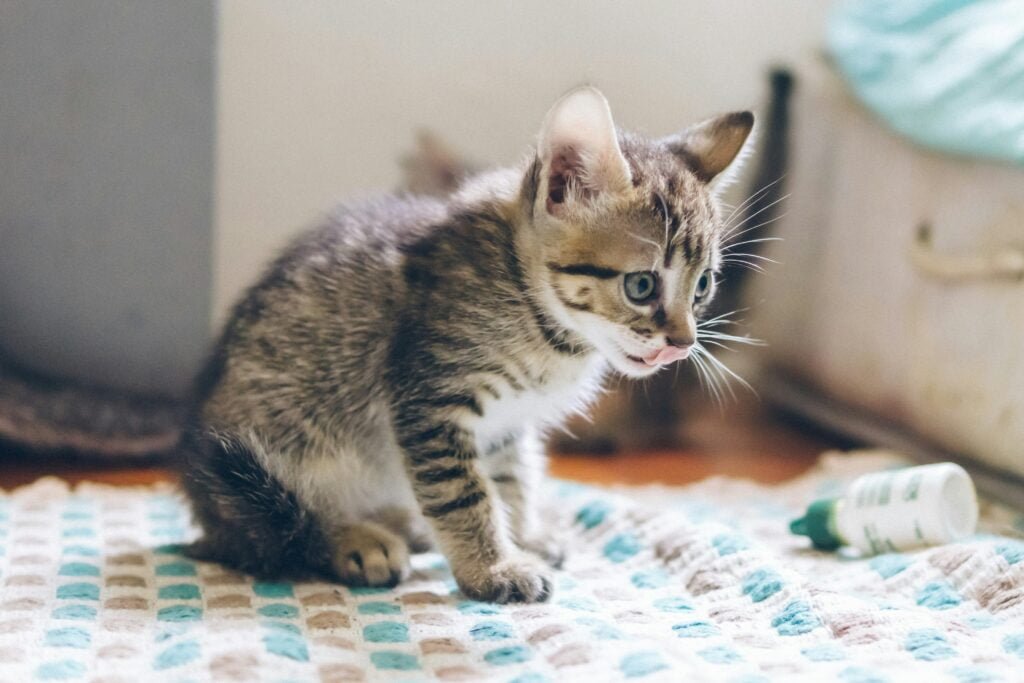
Cat vaccinations can cost different amounts depending on where you live and what shots your cat needs. Usually, it might cost between $50 to $200 for all the shots a kitten needs in their first year. After that, it’s usually less each year.
If you’re worried about the cost, there are some ways to get help:
- Some animal shelters offer low-cost vaccination clinics.
- Some vets might let you set up a payment plan.
- Pet insurance can sometimes help with vaccination costs.
Remember, spending money on vaccinations now can save you a lot of money later by keeping your cat healthy!
Wrapping Up: Why Cat Vaccinations Matter
Getting your cat vaccinated is one of the most important things you can do to keep them healthy. Here’s why:
1. Vaccinations protect your cat from very serious illnesses.
2. They can help your cat live a longer, happier life.
3. Some vaccinations, like rabies, also protect you and your family.
4. Regular vet visits for vaccinations help catch other health problems early.
Every cat is different, so it’s important to talk to your vet about what vaccinations your cat needs. They can make a special plan just for your furry friend.
Don’t wait!
If your cat hasn’t had their vaccinations recently, call your vet today to set up an appointment. Your cat will thank you for it (even if they don’t like going to the vet)!
Remember, a healthy cat is a happy cat. And vaccinations are a big part of keeping your cat healthy. So give your furry friend the gift of good health with regular vaccinations!

